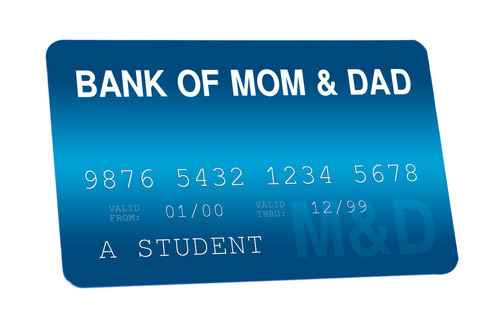When the Bank of Mum and Dad Diversifies From Lending to Gifting

When the Bank of Mum and Dad Diversifies From Lending to Gifting
In the economic turbulence of recent years ‘the Bank of Mum and Dad’ has probably been forced to expand its lending operations more than some high street banks. However, when parents instead make gifts to their children the validity of those gifts is sometimes challenged, often by their other children.
That was the factual background to the recent case of Blythe -v- Blythe. The Deceased died in September 2017 leaving a Will made in 2012 appointing one daughter, Stephanie as the executor of his estate but leaving his entire net estate between his 3 children Stephanie, Corinne and Courtney.
In September 2015, the Deceased had ostensibly made a gift of £200,000 to Corinne enabling her to take advantage of a ‘right to buy’ scheme.
Stephanie claimed that that transaction ought to be set aside on the grounds of either:
- Lack of mental capacity and/or
- Undue influence
Corinne issued proceedings seeking a declaration that the gift was valid as well as claiming that Stephanie had not completed the administration of their father’s estate.
In terms of lack of mental capacity to make a gift of this nature it was said that the relevant question was whether the deceased was capable of understanding the transaction but the degree or extent of the understanding which was required was relative to the particular transaction. For example, if the value of the gift is trivial in relation to the donor’s other assets, a low degree of understanding will be enough. If, on the other hand, the effect of the gift is to dispose of the donor’s only asset of value and thus has a significant effect on the disposition of their estate under their Will, then the degree of understanding required is likely to be as high as that required for a will and the donor must therefore be able to understand the claims of all potential donees and the extent of the property to be disposed of.
In this case, Stephanie was found not to have discharged the relevant burden of proving that, on the balance of probabilities, the Deceased did not have the necessary mental capacity to make the gift. The judge found that the Deceased had not been incapable of understanding the nature and effect of the gift had it been fully explained to him.
In terms of whether the gift should be set aside on the basis of undue influence, one of the questions was whether Corinne was in a position of trust and confidence in relation to the Deceased and/or had gained a degree of dominance or ascendency over him in circumstances where the transaction ‘called for an explanation’ giving rise to a presumption of undue influence. ‘If the gift is so large as not to be reasonably accounted for on the ground of friendship, relationship, charity or other ordinary motives on which ordinary men act the burden is on the donee to support the gift’
On the evidence, the judge decided the Deceased had not placed trust and confidence in Corinne in relation to his financial affairs nor had she developed a dominating or ascending influence over him. That was despite the fact that the Deceased had appointed Corinne as his attorney, because there was no evidence that Corinne took any control over the Deceased’s finances at any time before the gift to her was made.
In terms of whether the gift transaction could be explained by reference to ‘the motives of ordinary people’ in this sort of situation the judge decided that the transfer did not represent a gift of the majority of the Deceased’s assets as it was a sum of money which he had not needed access to for the previous two years and it was not needed to fund his day-to-day living expenses.
In the Deceased’s financial circumstances, the Judge decided that “to decide to assist one child with the purchase of a property, even if it impacted the inheritance prospects of the other children who were to benefit under his will is not a transaction so unusual or suspicious as to be only explicable on the basis that undue influence was exercised to procure it”.
Any parent thinking of making a substantial gift to their children in a way which doesn’t treat all of their children equally would almost certainly benefit from legal advice about the implications of the transaction before doing anything.
Get in touch with our contentious probate team
To speak to a member of our expert team about a will dispute, contact us today by calling 0330 175 7609 or email us at enquiries@ibblaw.co.uk.
